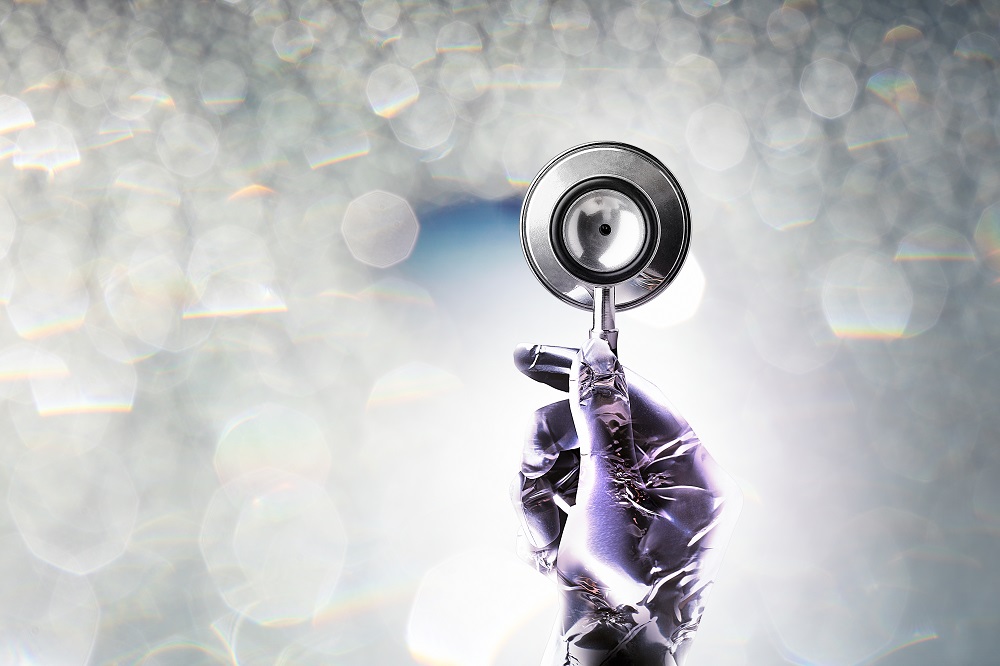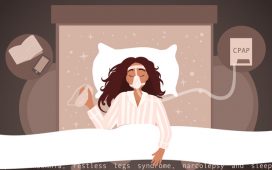AI (Almost Impossible)
Tractica, a market intelligence firm focused on human interaction with technology, predicts that artificial intelligence (AI) software, hardware, and services specific to healthcare, will likely surpass $34 billion worldwide by 2025.(1)
Below are three AI tools predicted to soon disrupt the medical landscape:
Facing Reality
It’s a face-off between clinical geneticists and DeepGestalt, AI technology created by the Boston-based tech company FDNA. This facial analysis framework, still in the study phase, begins with a photograph of a person’s face. The technology applies a deep learning algorithm to analyze finely defined facial characteristics and then deduces if this person has any facial characteristics proven to be associated with specific genetic disorders. For the record, DeepGestalt is programmed to diagnose more than 200 genetic disorders linked to facial characteristics. (2)
Enter the physician, who takes a positive find and identifies genetic diseases triggered by the identified genetic abnormality. Because DeepGestalt technology uses a wide range of genotypic information associated with more than 10,000 diseases, this could mean earlier medical diagnoses and treatments.(2)
This novel AI needs to be further studied and privacy issues loom large, with DeepGestalt critics saying the technology could lead to discrimination against those with pre-existing conditions. However, Dekel Gelbman, CEO of FDNA, feels that facial analysis technology will play a key role in the future of precision medicine.
“For years, we’ve relied solely on the ability of medical professionals to identify genetically linked disease,” Gelbman says. “We’ve finally reached a reality where this work can be augmented by AI, and we’re on track to continue developing leading AI frameworks using clinical notes, medical images, and video and voice recordings to further enhance phenotyping in the years to come.”
The three-year DeepGestalt study was recently published in the journal Nature Medicine, January 07, 2019. (2) Spoiler Alert: The article reports that DeepGestalt correctly identified a person’s unique genetic disorder 91 percent of the time.
Hold the Phone!
Did you see the latest meme that pokes fun at virtual assistants?

LOLs aside, there is one artificially intelligent assistant, currently being tested in Copenhagen, that everyone would welcome as an appreciated “eavesdropper” if calling 911 about possible cardiac arrest. To be more specific, the assistant goes by Corti AI, a real-time, AI-powered decision support system that relies on sound-recognition software to help emergency dispatchers identify patterns of anomalies or conditions of interest in a conversation with a caller. Sounds being analyzed include words as well as background noises – like a victim’s unusual breathing, even if that person is not the caller. Corti AI alerts the emergency dispatcher if it identifies patterns that indicate cardiac arrest in progress.
According to studies conducted by Corti AI’s creator, a Denmark-based startup also named Corti, the tool has bragging rights to some life-saving stats:(3)
- Corti AI helped emergency dispatchers in Copenhagen recognize cardiac arrest 95 percent of the time. Without the AI tool, that number dropped to about 73 percent.
- In the case of out-of-hospital cardiac arrest (OHCA), Corti AI can reduce the number of undetected OHCAs by more than 50 percent.
- On average, Corti AI can detect cardiac arrest within 50 seconds of an emergency call being initiated – more than 30 seconds faster than humans did.
In 2018, Corti partnered with EENA (the European Emergency Number Association) to expand Corti AI studies beyond Copenhagen emergency services and into four additional European Union countries. (4) Stay tuned for the latest overheard news.
Game On
The heat was on as BioMind, an AI system that uses deep learning technology to analyze MRI and CT images, raced against a team of 25 radiologists and neurological doctors in a neuroimaging competition, hosted in Beijing, China. Who – or what – could diagnose brain tumors and predict hemorrhage and cerebrovascular diseases faster after studying CT and MRI images?
In two rounds of competition, BioMind won both times – 2-to-zip – and was 20 percent more accurate. This marked the world’s first neuroimaging competition between human physicians and artificial intelligence.(5)
BioMind, developed jointly by the Artificial Intelligence Research Center for Neurological Disorders at the Beijing Tiantan Hospital and a research team from the Capital Medical University, closed the first competition with impressive numbers, making a correct diagnosis in 87 percent of 225 cases in about 15 minutes. The team of senior doctors achieved 66 percent accuracy in 30 minutes. (6) The second competition brought BioMind more glory, identifying images relating to brain hematoma expansion with 83 percent accuracy vs. the physicians’ 63 percent accuracy.
Of course, BioMind can only do so much! The CE-certified AI application for brain diagnosis is meant to assist the physician, quickly recommend a diagnosis and generate a report for doctors to review. A faster diagnosis helps doctors initiate treatment faster. As clearly stated at the BioMind website, “Hospitals are facing severe pressures coping with mounting demands, resulting in rising fatigue and misdiagnoses… We help doctors overcome human limitations by improving the accuracy and efficiency of the diagnosis and treatment process.” (7)
—
Resources
2) Gurovich, Y., Hanani, Y., Bar, O., Nadav, G., Fleischer, N., Gelbman, D., et al. (2019). Identifying facial phenotypes of genetic disorders using deep learning. Nat. Med.25:60. doi: 10.1038/s41591-018-0279-0
5) AP Archive. (2018, July 10). Artificial Intelligence defeats medics at neuroimaging.
6) Yamei. (2018, June 30). China Focus: AI beats human doctors in neuroimaging recognition contest.
7) BioMind™ – AI Applications for Healthcare. (n.d.).







